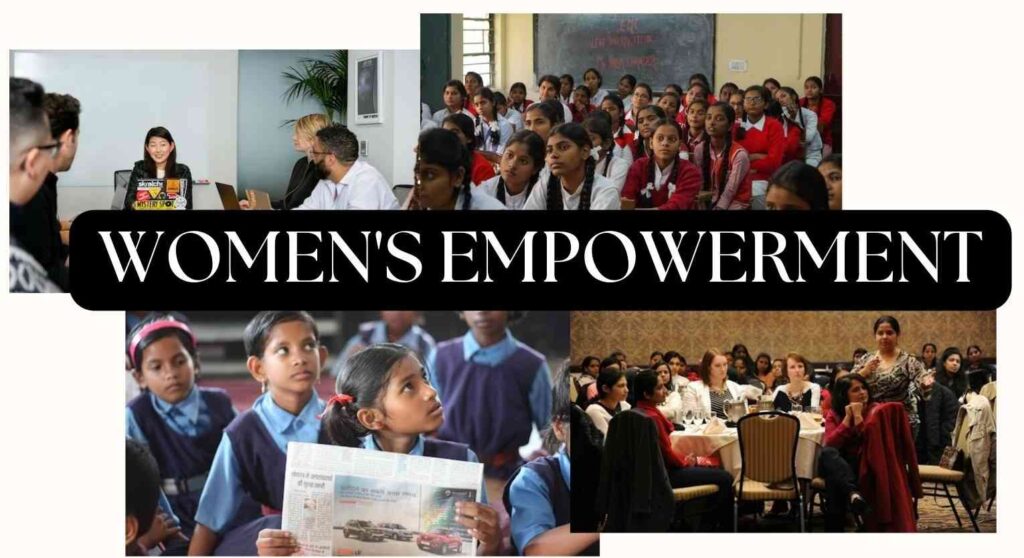Unleashing the Power of Women and Girls in India: Overcoming Challenges and Championing Equality

Introduction
In the dynamic landscape of India, characterized by a rich cultural heritage and a burgeoning economy, the issue of gender equality takes center stage. Despite commendable progress in recent decades, women and girls in India still grapple with discrimination and obstacles hindering their access to education, employment, and leadership roles. Empowering women is not only a matter of fairness but a pivotal driver for economic growth, social development, and sustainable progress.
The Status of Women and Girls in India
While strides have been made in women’s education, reflected in rising literacy rates and increased participation in higher education, gender disparities persist. Women’s representation in the workforce remains below optimal levels, and they often find themselves underrepresented in leadership positions across various sectors. Gender-based violence, encompassing issues like domestic violence, child marriage, and female feticide, continues to be a pervasive concern.
The Significance of Empowering Women and Girls
Empowering women and girls is a linchpin for achieving sustainable development and inclusive progress. When empowered, they become catalysts for change, contributing not only to their families and communities but to the nation as a whole.
- Economic Growth: The empowerment of women in the workforce enhances economic productivity, reduces poverty, and propels overall economic growth.
- Social Development: Educating and empowering girls leads to improved maternal health, reduced child mortality, and higher literacy rates.
- Sustainable Progress: Empowering women and girls fosters environmental consciousness, responsible resource management, and inclusive decision-making for sustainable development.
Breaking Barriers to Women’s Empowerment
A comprehensive approach is imperative to address the root causes of gender inequality:
- Education and Skills Development: Enhancing access to quality education for girls and providing vocational training and skills development for women are crucial for improving employability and economic independence.
- Economic Opportunities: Promoting women’s entrepreneurship, creating employment opportunities in women-dominated sectors, and ensuring equal pay for equal work are pivotal for economic empowerment.
- Attitudinal Change and Social Reform: Challenging gender stereotypes, promoting positive role models, and addressing social norms perpetuating gender discrimination are essential for creating a more equitable society.
- Legal and Institutional Reforms: Strengthening laws against gender-based violence, ensuring access to justice for women, and promoting gender-sensitive policies and programs are vital for legal and institutional reform.
Promoting Gender Equality through Government Initiatives
The Indian government has implemented various initiatives to promote gender equality and empower women:
- Beti Bachao, Beti Padhao: A flagship program addressing female feticide and promoting girls’ education.
- Mahila Shakti Kendra: Centers providing women with access to information, skills development, and financial services.
- Women@Work: An initiative promoting women’s participation in the workforce through skill development, placement assistance, and entrepreneurship support.
- Gender Budgeting: Ensuring government budgets allocate resources specifically for women-centric programs and initiatives.
The Way Forward
Empowering women and girls in India is an ongoing journey that demands sustained efforts at all levels—individual, community, national, and international. By dismantling barriers, promoting education, and fostering gender equality, we can pave the way for a society where women and girls have the opportunity to realize their full potential and contribute to a more just, equitable, and prosperous India.




